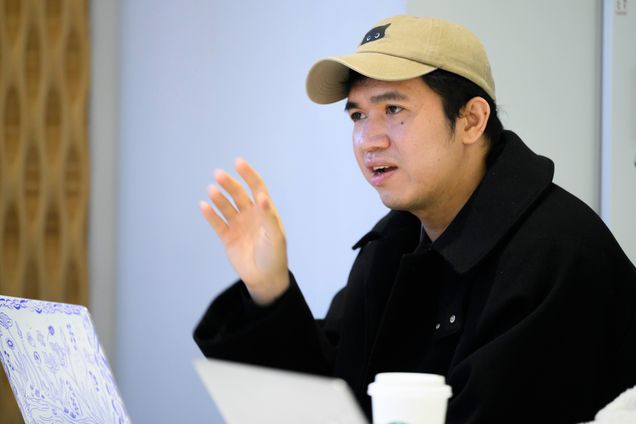Preparing for life after graduation
A weekly course offers professional development for Biology, Bioinformatics, Neuroscience, and Molecular Biology, Cell Biology & Biochemistry PhD students
A weekly course offers professional development for Biology, Bioinformatics, Neuroscience, and Molecular Biology, Cell Biology & Biochemistry PhD students
On a particularly rainy Monday morning in March, a group of 11 masters and doctoral students from the graduate programs in Biology, Bioinformatics, Neuroscience, and Molecular Biology, Cell Biology & Biochemistry (MCBB) gathered together in a seminar room in the Rajen Kilachand Center for Integrated Life Sciences and Engineering to talk about their futures.
The discussion was part of “Professional Development for Biology PhDs,” a two-credit, once-weekly class aimed to prepare graduate students for postgraduate life through career exploration, assistance with PhD completion, and job preparation.

“When students come in, they’ll say, ‘I think I want to do X, but I’m not sure… maybe I want to think about other options,’ or ‘I think I want to do X, but I don’t know exactly how to get there,’” said Zeba Wunderlich, associate professor of biology and director of the MCBB program, who teaches the course. “I think just giving them a space to learn about careers and build professional skills gives them more confidence.”
Wunderlich, who studies how the genome encodes different types of genes, started the professional development course in 2022. The department was participating in the Association of American Universities’ PhD Education Initiative, which aims to improve the culture of doctoral education at its member universities, and wanted to give graduate students tools for finishing their PhDs, as well as showcase job opportunities available to them beyond academia.
Over the course of the semester, Wunderlich offers career panels, guest presentations, lectures, and working sessions to practice some of these skills, tailoring her class to students’ needs and curiosities as they navigate their masters or PhD programs. She finds that that students in different stages of education are at different places in career readiness, and noted that panels in particular give students confidence that they are on the right track with their career plans, or introduce jobs they are interested in and had never heard about.

“I think that sometimes people aren’t sure how to get advice on pursuing different careers,” said Wunderlich, who served as a postdoctoral fellow in systems biology at Harvard Medical School Boston after earning her PhD in biophysics from Harvard. “I find that our master’s students are actually generally pretty focused. Our PhD students usually do have some idea of what they want to do after graduating, but it’s such a long degree program that sometimes their goals change as they go through the program, which is perfectly fine.”

 Wunderlich started that March morning by walking her students through the interview process — highlighting interviewing technique, tips, and skills students would need to succeed outside of the classroom and leading a discussion with her students about their personal goals and experiences. Later, Wunderlich went around the room and practiced a mock interview question with each student. She broke down the process of interviewing to make it “less scary,” touching on the students’ least favorite parts of the process to make them more comfortable in this week’s meeting.
Wunderlich started that March morning by walking her students through the interview process — highlighting interviewing technique, tips, and skills students would need to succeed outside of the classroom and leading a discussion with her students about their personal goals and experiences. Later, Wunderlich went around the room and practiced a mock interview question with each student. She broke down the process of interviewing to make it “less scary,” touching on the students’ least favorite parts of the process to make them more comfortable in this week’s meeting.
“Think of weaknesses as areas for growth,” Wunderlich said to her students.
Professional development programs exist across BU’s departments and schools along with its specialized Office of Professional Development and Postdoctoral Affairs. Wunderlich’s course has often partnered with the office, she explained, bringing its resources and guest lecturers into class.